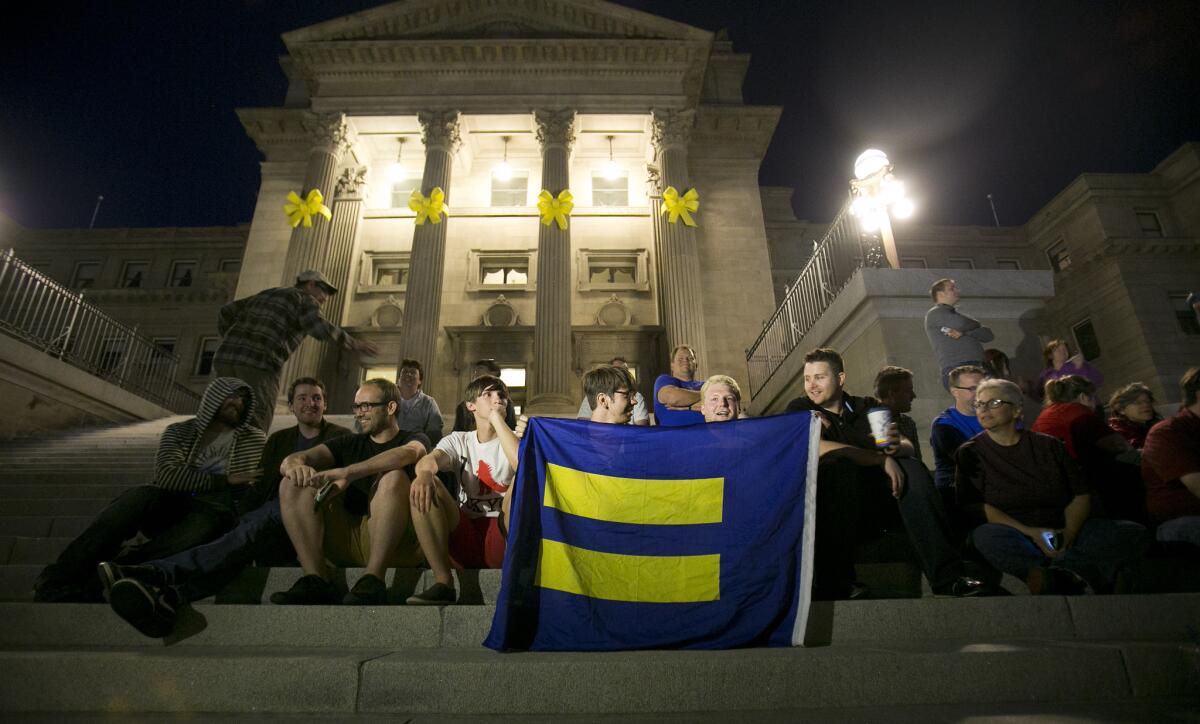Idaho gay marriages on hold before they begin; 9th circuit issues stay

- Share via
Gay couples in Idaho may not begin marrying on Friday after all, a three-judge panel of the U.S. 9th Circuit Court of Appeals said Thursday.
The appellate court put a temporary hold on U.S. Chief Magistrate Judge Candy Wagahoff Dale’s ruling that the state Constitution’s definition of marriage as only between a man and a woman is unconstitutional.
As part of her ruling earlier this week, Dale had barred Idaho from enforcing its ban on same-sex marriage past 9 a.m. Friday. The state had asked for a stay until the appellate court could consider an appeal.
Gov. C.L. “Butch” Otter cheered the stay, saying he would pursue an “aggressive challenge in the appellate court.”
“I appreciate the 9th U.S. Circuit Court of Appeals stepping in to ensure Idaho will not have to endure the same kind of chaos and confusion that Utah faced after a similar lower-court decision,” Otter said in a statement.
In Utah, as well as in Michigan and Arkansas, county clerks responding to court rulings that struck down gay-marriage bans started issuing marriage licenses to same-sex couples, and then the ruling was suspended.
The validity of those marriages has been called into question. Michigan and Utah have not recognized them as valid, but the federal government has. The situation is still playing out this week in Arkansas.
The 9th circuit said Thursday that it was still considering whether to issue a permanent stay pending the state’s appeal.
Dale’s ruling nullified a 2006 referendum that garnered 63% of the vote and enshrined the ban in the state Constitution.
In her decision, Dale echoed other rulings in federal cases around the country and called Idaho’s arguments for the ban unfounded.
“The defendants offered no evidence that same-sex marriage would adversely affect opposite-sex marriages or the well-being of children,” Dale wrote. “Without proof, the defendants’ justifications echo the unsubstantiated fears that could not prop up the anti-miscegenation laws and rigid gender roles of days past.”
More to Read
Sign up for Essential California
The most important California stories and recommendations in your inbox every morning.
You may occasionally receive promotional content from the Los Angeles Times.













